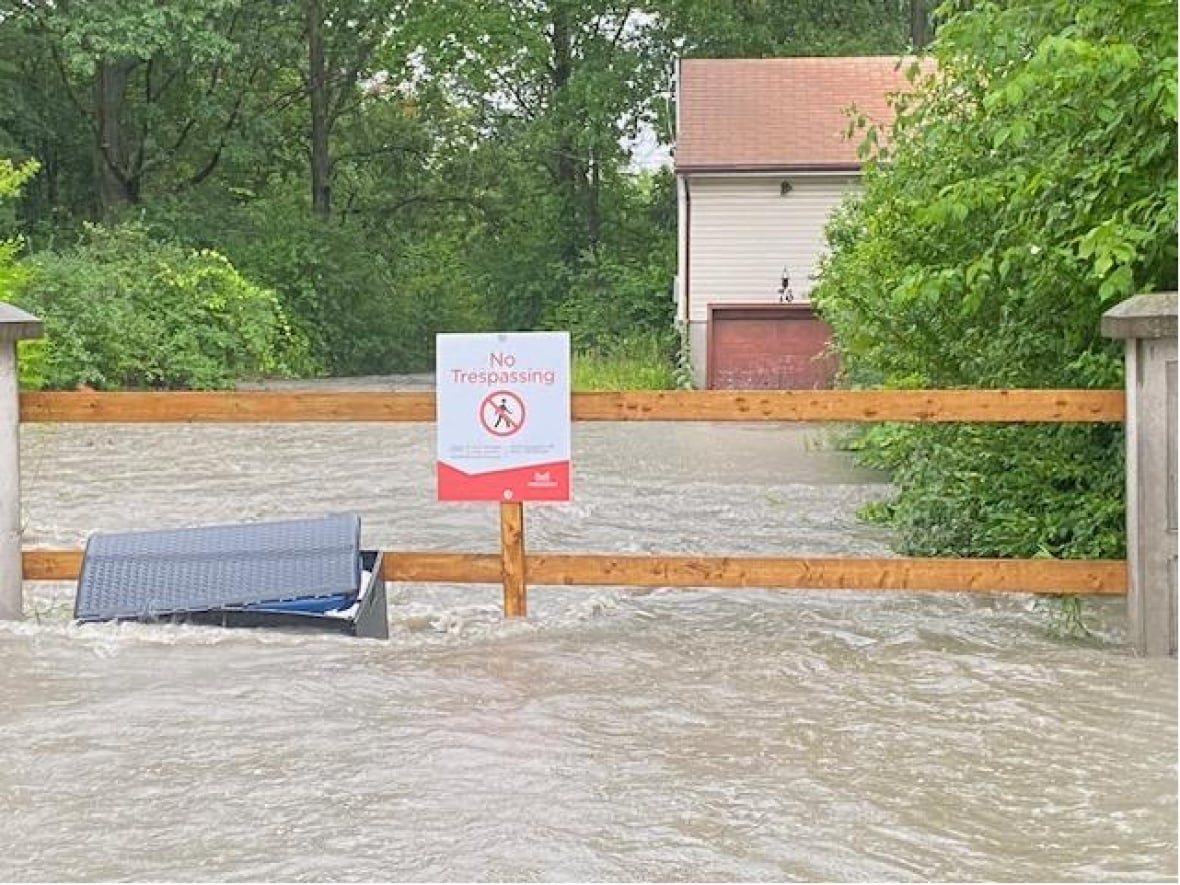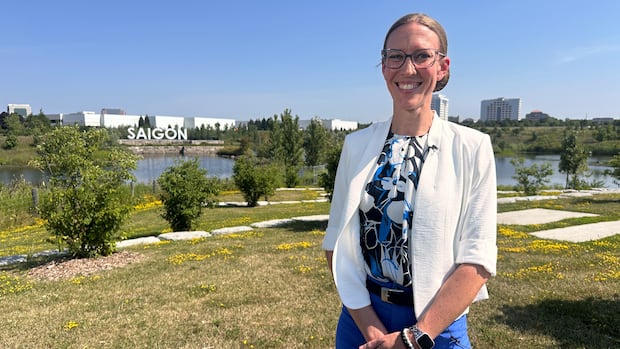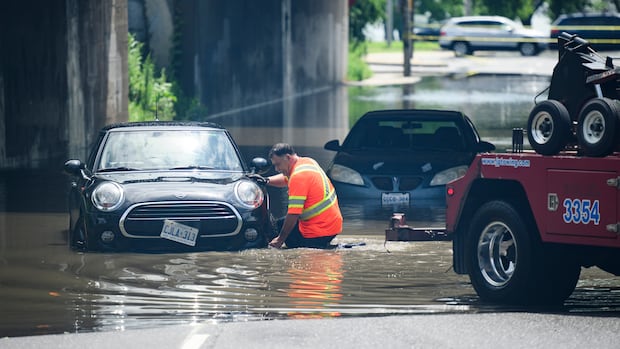1 year after extreme flooding, Mississauga pours millions into speeding up storm-water system improvements
City’s accelerated plan includes rapidly shoring up creeks and upgrading sewers
Christopher Davidson, a water resources engineer and Mississauga resident, remembers the moment he realized 2024 would be a stormy summer like no other.
On July 16 and August 17 and 18, two record-breaking storms unleashed 280 millimetres of rain on the city, trapping people on flooded roads, running over the edges of creeks and soaking into buildings. The larger GTHA was also affected.
"Honestly, in my job I'm always expecting those 100-year storms, and to actually start seeing the manholes start to rattle and water shoot out… I thought, 'oh, this is special,'" he said of the July downpour.
Davidson, who runs an engineering-focused YouTube channel, whipped out his camera for both storms, documenting high creek levels, overwhelmed catch basins and a tree knocked down by floodwater.
Storms like these, he said, "are something that [engineers] expect … but not something they'd expect this often. And that's kind of what we're facing."
The City of Mississauga says it has spent the year since then working to prepare for climate change-fuelled storms by pouring money into storm-water infrastructure upgrades.
The city's accelerated plan, approved by council in September 2024, drew from urban examples as far flung as Nashville, Seattle and Vancouver.
"As a result of the storms we had last summer, we took an approach to try and figure out if there's some immediate sort of quick wins we could look at," said Emma Calvert, director of infrastructure planning at the City of Mississauga.
More than $20M spent this year
The quick wins completed so far in Mississauga as part of the plan include the installation of a flood wall along Little Etobicoke Creek, a sewer upgrade not far from the creek near the Etobicoke border and improvements to the storm-water system along Cooksville Creek.
Calvert says the city is also fast-tracking longer term projects, such as the Dixie-Dundas Flood Mitigation Project, which she says prioritize "some of our flood vulnerable areas … to help improve resiliency."
The Dixie-Dundas project, originally set to be finished by 2034, is being expedited by six years, with a new completion date of 2028.

Another line of attack being taken by Mississauga is hiring new staff to step up the inspection of storm-water inlets and increasing check-ins on the city's nearly 2,000 kilometres of storm sewer pipes.
Finally, the city also rolled out financial relief programs for people impacted by last summer's extreme flooding, including a one-time grant of $1,000 to homeowners and tenants and rebates for installing basement flood protection devices like sump pumps.
In all, the price tag for the accelerated plan adds up to just over $20 million in 2025, on top of the nearly $58 million the city was already set to spend on storm-water management this year.
Advice for homeowners
Joe Desloges, a geography and earth sciences professor at the University of Toronto who studies climate change and flooding, says Mississauga's taking "very aggressive" steps to prepare for a challenge being faced by cities around the world.
"There are strategies around retrofitting storm-water ponds, updating sewer systems, and Mississauga is doing a lot of that," he said.
"And then of course, they're using the natural waterways as sort of the last effort to try and help with water drainage."
Desloges told CBC Toronto that he sees flood mitigation as a "partnership" between individuals, governments and conservation authorities. He says homeowners should research steps they can take to prepare their own properties for rain, such as disconnecting downspouts, replacing hard outdoor surfaces with absorbent gardens and grading lawns.
Davidson, the Mississauga engineer, says one of the biggest challenges cities face is predicting exactly what infrastructure will be needed in the decades to come.
"If I'm building a sewer now, it's going to be there for the next 50 or 100 years. So we're all just trying to guess what's going to happen," he said. "We're trying to estimate the high end of that range to make sure that we're keeping things safe."
With files from Talia Ricci

